
Discovering Quartier Plateau 7: Niamey's Hidden Gem
Quartier Plateau 7 in Niamey, Niger, is an enchanting neighbourhood that offers a blend of cultural heritage and modernity. This area is renowned for its picturesque streets lined with traditional Sahelian architecture, offering a glimpse into the rich history and culture of Niger. Wander through its bustling markets, where the vibrant colours and aromas of local produce and spices create an unforgettable sensory experience. Quartier Plateau 7 is also home to an array of dining options that cater to all tastes. From traditional Nigerien cuisine to international dishes, the neighbourhood's restaurants and cafes provide visitors with a culinary journey that is both delightful and diverse. Be sure to try local dishes such as 'djerma' and 'foufou' to truly immerse yourself in the local culture. In addition to its culinary delights, Quartier Plateau 7 boasts several cultural attractions, including art galleries and cultural centres that showcase the talents of local artists. The neighbourhood’s proximity to the Niger River also makes it a perfect spot for leisurely walks and picturesque views, especially during sunset. Whether you're a history buff, a foodie, or simply looking for a relaxing stroll, Quartier Plateau 7 has something to offer everyone.
Local tips in Quartier Plateau 7
- Visit early in the morning to enjoy the local markets at their liveliest and avoid the midday heat.
- Try the local street food for an authentic taste of Nigerien cuisine.
- Carry bottled water with you, especially if you plan to walk around the neighbourhood.
- Learn a few basic phrases in French or Hausa to enhance your interactions with locals.
- Wear comfortable shoes as the best way to explore is by foot.
Discovering Quartier Plateau 7: Niamey's Hidden Gem
Quartier Plateau 7 in Niamey, Niger, is an enchanting neighbourhood that offers a blend of cultural heritage and modernity. This area is renowned for its picturesque streets lined with traditional Sahelian architecture, offering a glimpse into the rich history and culture of Niger. Wander through its bustling markets, where the vibrant colours and aromas of local produce and spices create an unforgettable sensory experience. Quartier Plateau 7 is also home to an array of dining options that cater to all tastes. From traditional Nigerien cuisine to international dishes, the neighbourhood's restaurants and cafes provide visitors with a culinary journey that is both delightful and diverse. Be sure to try local dishes such as 'djerma' and 'foufou' to truly immerse yourself in the local culture. In addition to its culinary delights, Quartier Plateau 7 boasts several cultural attractions, including art galleries and cultural centres that showcase the talents of local artists. The neighbourhood’s proximity to the Niger River also makes it a perfect spot for leisurely walks and picturesque views, especially during sunset. Whether you're a history buff, a foodie, or simply looking for a relaxing stroll, Quartier Plateau 7 has something to offer everyone.
Iconic landmarks you can’t miss
Great Mosque of Niamey
Discover the Great Mosque of Niamey, a breathtaking architectural marvel and cultural landmark in Niger's vibrant capital, offering a glimpse into Islamic heritage.
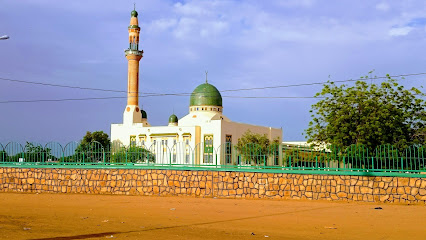
Boubou Hama National Museum
Discover the cultural treasures of Niger at Boubou Hama National Museum, where history, art, and tradition come alive in the heart of Niamey.
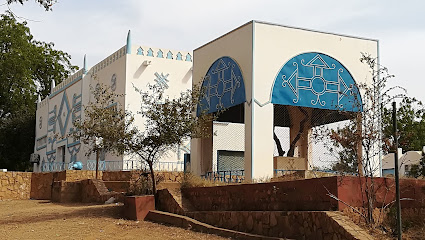
Sixième Square
Experience the heart of Niamey at Sixième Square, a vibrant monument showcasing Niger's culture, history, and community spirit.
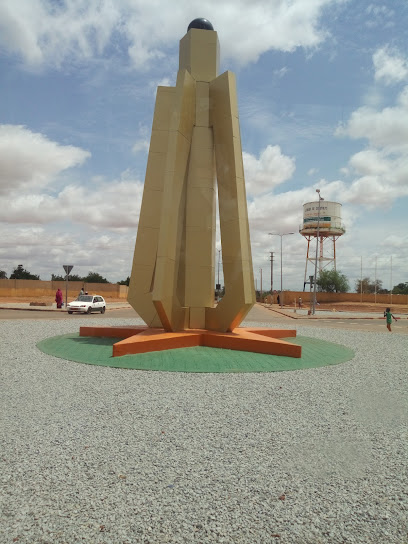
Place of Veterans
Explore the Place of Veterans in Niamey, a serene memorial park honoring the courageous sacrifices of Niger's heroes amidst lush gardens and sculptures.
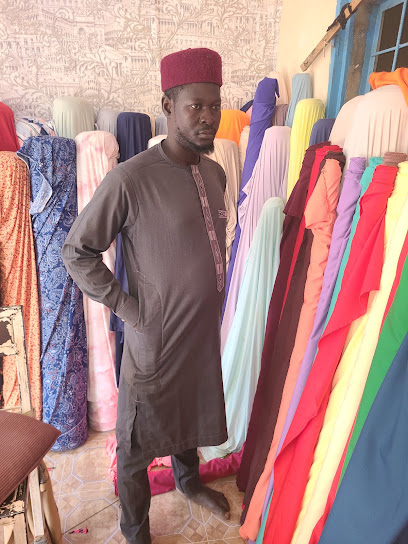
Place de la résistance
Discover the rich history and vibrant atmosphere of Niamey's Place de la Résistance, a symbol of resilience and unity in Niger's capital.

PLACE DE LA RÉSIDENCE
Explore the historical charm of Place de la Résidence, a vibrant cultural landmark in the heart of Niamey, showcasing Niger's rich heritage.

Plaque Banizoumbou
Experience the stunning views of Niamey from the breathtaking observation deck of Plaque Banizoumbou, a must-visit for every traveler.

Place Colonel Annoutab
Experience the serene beauty of Place Colonel Annoutab, a tranquil park in Niamey, perfect for relaxation and outdoor activities in the heart of the city.

PLACE DE LA PATRIE
Explore Place de la Patrie, a historical landmark in Niamey, where culture, heritage, and vibrant community spirit come alive in the heart of Niger.

Unmissable attractions to see
Grand Market Niamey
Explore the vibrant Grand Market Niamey, a cultural hub filled with local crafts, delicious street food, and a unique shopping experience in Niger's capital.
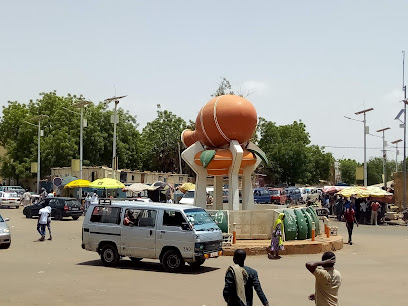
Great Mosque of Niamey
Discover the Great Mosque of Niamey, a stunning architectural wonder and a vital cultural hub in Niger's capital, showcasing the beauty of Islamic heritage.
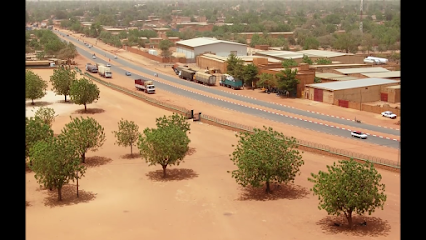
Boubou Hama National Museum
Explore the cultural richness of Niger at Boubou Hama National Museum, where history comes alive through fascinating exhibits and artifacts.
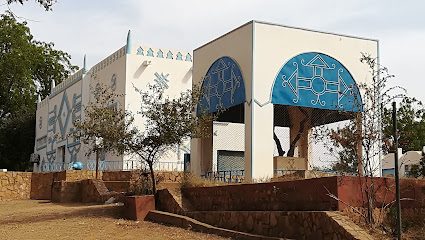
Place Colonel Annoutab
Experience the tranquility of Place Colonel Annoutab, a lush park in Niamey perfect for relaxation and cultural exploration.

Essential places to dine
Amandine
Experience authentic Nigerien cuisine at Amandine in Niamey – where every meal tells a story!
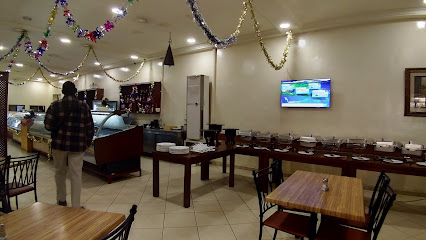
La Cabane
Discover La Cabane in Niamey: A delightful restaurant offering local and international flavors in a charming setting perfect for all travelers.
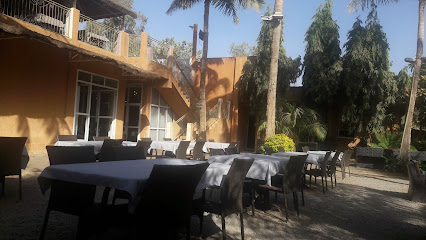
Côté Jardin
Experience the perfect blend of nature and cuisine at Côté Jardin in Niamey – your culinary oasis awaits!
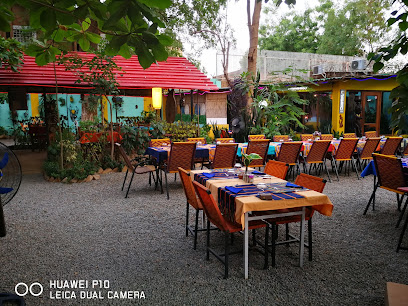
The Pillar Restaurant
Discover authentic Italian flavors at The Pillar Restaurant in Niamey - where delightful cuisine meets serene ambiance.
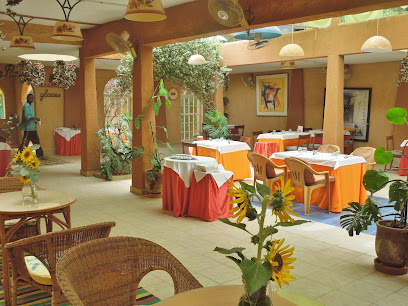
Restaurant Dragon D'or Niamey
Experience authentic Chinese cuisine at Restaurant Dragon D'or in Niamey - where local flavors meet culinary excellence.
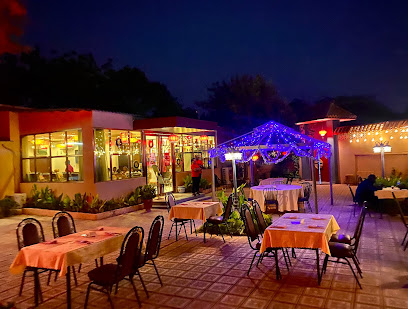
Maquis 2000
Experience authentic Nigerien cuisine at Maquis 2000, where every meal is a flavorful journey through the heart of Niamey.
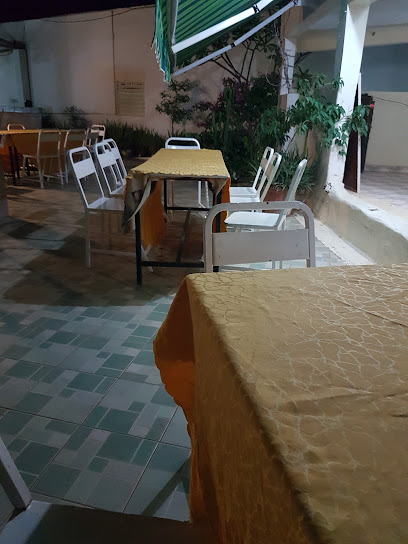
ALMINA Restaurant
Discover the exquisite flavors of Niger at ALMINA Restaurant in Niamey, where local cuisine meets international flair in a warm ambiance.
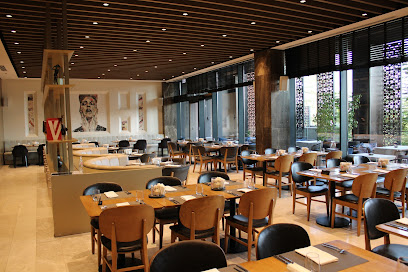
TWO TWO SEVEN
Experience delicious fast food with a local twist at TWO TWO SEVEN in Niamey - where flavor meets convenience.
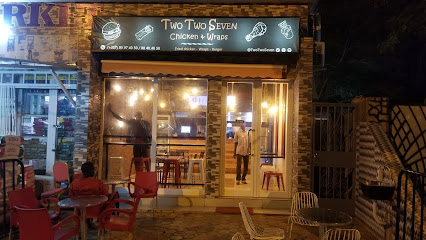
L'assiette DAKAR
Experience authentic Nigerien cuisine at L'assiette DAKAR in Niamey – where flavor meets hospitality.
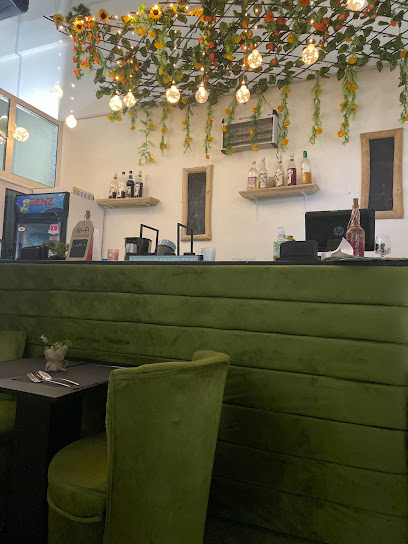
Restaurant Koubeyni
Discover exquisite flavors at Restaurant Koubeyni in Niamey—where local cuisine meets international flair in an inviting atmosphere.
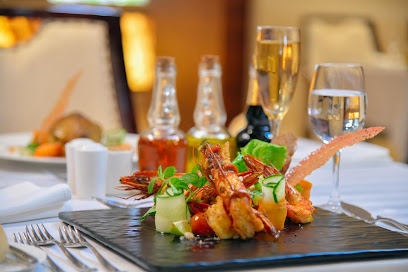
Markets, malls and hidden boutiques
Grand Market Niamey
Discover the heart of Niamey at Grand Market, a vibrant hub of culture, crafts, and culinary delights in Niger.
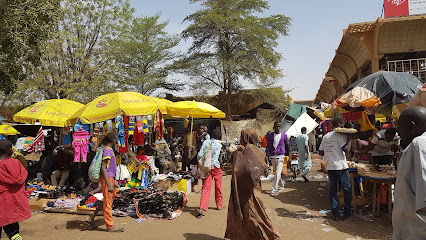
Marché Wadata
Discover the vibrant atmosphere of Marché Wadata, a bustling market in Niamey offering unique crafts, local delicacies, and a cultural experience.
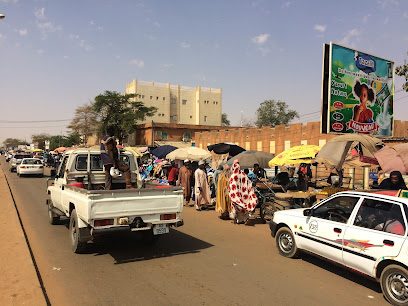
Alimentation riyad
Discover the rich culinary heritage of Niamey at Alimentation Riyad, a vibrant grocery store offering local and international delicacies.
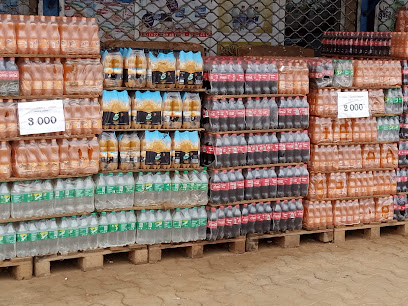
Niamey Mall & residence
Explore shopping, dining, and relaxation at the Niamey Mall & Residence, a vibrant destination in the heart of Niger's capital.
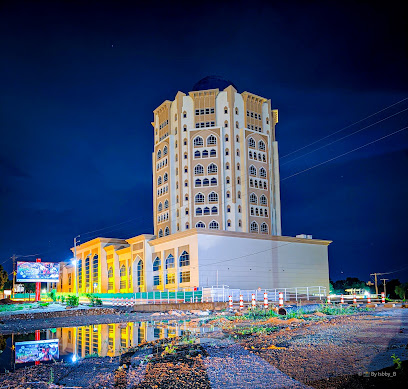
Chic Store
Discover the vibrant shopping experience at Chic Store in Niamey, featuring local produce and everyday essentials in a welcoming atmosphere.
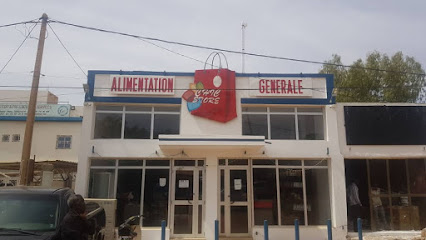
KENZOLY
Explore KENZOLY in Niamey for unique clothing pieces that blend traditional Nigerien styles with modern trends, perfect for your travel wardrobe.
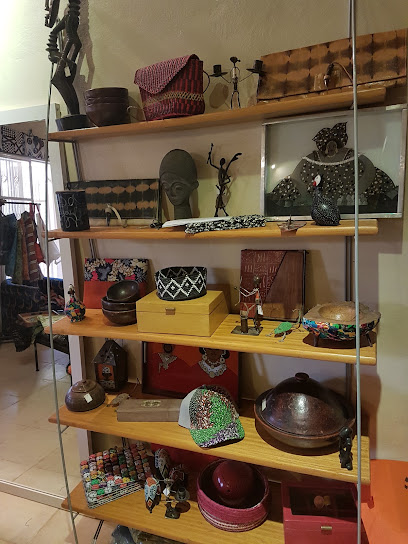
MODE & TENDANCE
Discover unique fashion accessories at MODE & TENDANCE in Niamey, where local craftsmanship meets contemporary style.
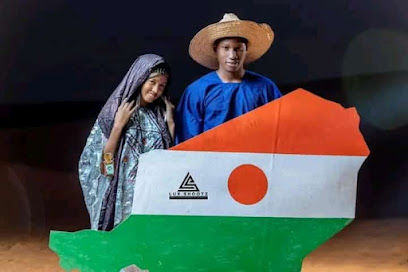
Otentik Shop
Explore the vibrant world of Niger's art at Otentik Shop in Niamey, offering a unique selection of posters reflecting local culture.
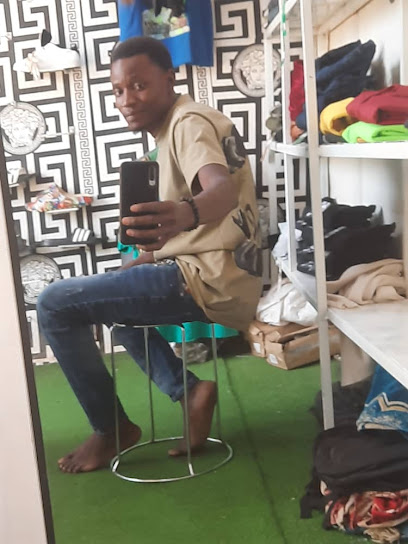
TECHNOLOGIE AVANCÉE
Explore cutting-edge technology and innovative gadgets at Technologie Avancée, a must-visit destination in Niamey, Niger.

Authentique shop
Discover authentic Nigerien crafts and modern retail at Authentique Shop, a vibrant shopping destination in Niamey.
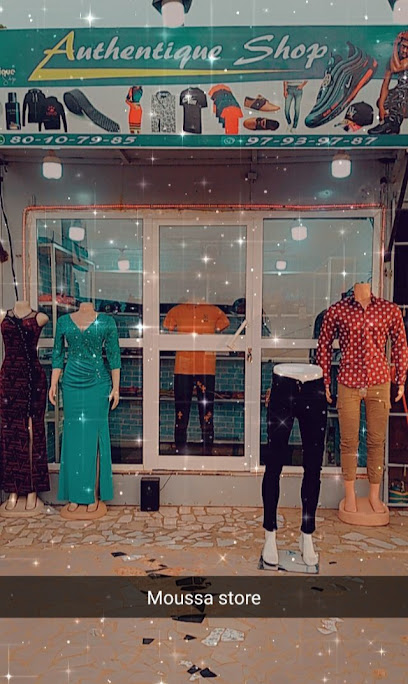
Local Phrases
-
- HelloSannu
[sah-noo] - GoodbyeSannu da aiki
[sah-noo dah ah-ee-kee] - YesEh
[eh] - NoA'a
[ah-ah] - Please/You're welcomeDa so
[dah soh] - Thank youNa gode
[nah goh-deh] - Excuse me/SorrySai an jima
[sah-ee ahn jee-mah] - How are you?Yaya ke?
[yah-yah keh] - Fine. And you?Lafiya. Kana lafiya?
[lah-fee-yah. kah-nah lah-fee-yah] - Do you speak English?Kana jin Turanci?
[kah-nah jeen too-rahn-chee] - I don't understandBan fahimci ba
[bahn fah-heem-chee bah]
- HelloSannu
-
- I'd like to see the menu, pleaseIna son duba menu, don Allah
[ee-nah sohn doo-bah meh-noo, dohn ah-lah] - I don't eat meatBan samu nama
[bahn sah-moo nah-mah] - Cheers!Barka da shan ruwa!
[bar-kah dah shahn roo-wah] - I would like to pay, pleaseIna son yi kudi, don Allah
[ee-nah sohn yee koo-dee, dohn ah-lah]
- I'd like to see the menu, pleaseIna son duba menu, don Allah
-
- Help!Taimaka!
[tai-mah-kah] - Go away!Zo kusa!
[zoh koo-sah] - Call the Police!Kira yan sanda!
[kee-rah yahn sahn-dah] - Call a doctor!Kira dokin
[kee-rah doh-keen] - I'm lostNa gudu
[nah goo-doo] - I'm illNa da lafiya
[nah dah lah-fee-yah]
- Help!Taimaka!
-
- I'd like to buy...Ina so ku gaba...
[ee-nah soh koo gah-bah] - I'm just lookingNa yi duba gare ku
[nah yee doo-bah gah-reh koo] - How much is it?Shi ne lokaci?
[she neh loh-kah-chee] - That's too expensiveWannan ya fi kudi
[wahn-nahn yah fee koo-dee] - Can you lower the price?Zaka iya sake fama?
[zah-kah ee-yah sah-keh fah-mah]
- I'd like to buy...Ina so ku gaba...
-
- What time is it?Yaya lokaci ne?
[yah-yah loh-kah-chee neh] - It's one o'clockShi ne bakin dare
[she neh bah-keen dah-reh] - Half past (10)Da rabi (goma sha 10)
[dah rah-bee goh-mah shah 10] - MorningSafe
[sah-feh] - AfternoonRana
[rah-nah] - EveningYamma
[yahm-mah] - YesterdayJibi
[jee-bee] - TodayYau
[yah-oo] - TomorrowGobe
[goh-beh] - 1Daya
[dah-yah] - 2Biyu
[bee-yoo] - 3Uku
[oo-koo] - 4Huɗu
[hoo-doo] - 5Biɗa
[bee-dah] - 6Shida
[shee-dah] - 7Bakwai
[bahk-wai] - 8Takwas
[tah-kwahs] - 9Tara
[tah-rah] - 10Goma
[goh-mah]
- What time is it?Yaya lokaci ne?
-
- Where's a/the...?Ina...
[ee-nah] - What's the address?Yaya an bar wucewa?
[yah-yah ahn bahr woo-chay-wah] - Can you show me (on the map)?Zaka iya nuna min (a cikin rubutu)?
[zah-kah ee-yah noo-nah meen (ah chee-keen roo-boo-too)] - When's the next (bus)?Yaya lokacin maɗauka ne?
[yah-yah loh-kah-cheen mah-dow-kah neh] - A ticket (to ....)Takiti (zuwa....)
[tah-kee-tee (zoo-wah)]
- Where's a/the...?Ina...
History of Quartier Plateau 7
-
Quartier Plateau 7, like much of Niamey, was shaped significantly during the French colonial era in the early 20th century. The French established administrative and military posts in the city, leading to urban planning that incorporated European architectural styles. This period laid the groundwork for the modern layout of Quartier Plateau 7, which became a residential area that reflects the blend of indigenous and colonial influences.
-
Following Niger's independence from France in 1960, Quartier Plateau 7 experienced a cultural renaissance. As the capital's administrative and political importance grew, the neighborhood became a hub for cultural institutions and events. This period saw the establishment of local markets and community centers, fostering a vibrant atmosphere where traditional Nigerien culture thrived alongside modern influences.
-
The 1990s were marked by political turmoil and social change in Niger, which affected Quartier Plateau 7. Amidst a backdrop of democratization and civil unrest, the neighborhood became a focal point for political activism. Community leaders and residents organized forums and discussions on governance and human rights, reflecting the broader national dialogue on democracy and civic engagement.
-
In the 21st century, Quartier Plateau 7 has faced the challenges of rapid urbanization. As Niamey continues to grow, the neighborhood has seen an influx of residents and informal settlements. Infrastructure development has struggled to keep pace with population growth, leading to issues such as inadequate housing and public services. Despite these challenges, Quartier Plateau 7 remains a vibrant community, characterized by its resilience and rich cultural life.
-
Today, Quartier Plateau 7 is recognized for its cultural heritage and community initiatives aimed at preserving local traditions. Artisans, musicians, and cultural organizations actively promote Nigerien heritage through festivals, exhibitions, and educational programs. This focus on cultural preservation plays a crucial role in fostering a sense of identity and unity among residents while attracting visitors interested in experiencing the local culture.
Quartier Plateau 7 Essentials
-
Quartier Plateau 7 is situated in the heart of Niamey, making it easily accessible from various neighborhoods. From the airport, you can take a taxi, which typically takes about 20 minutes. If you're coming from downtown Niamey, local taxis and motorbike taxis (zems) are widely available and can take you directly to Quartier Plateau 7. Buses also operate along major routes, but they may not directly connect to this neighborhood.
-
In Quartier Plateau 7, the primary means of transportation are taxis and zems. Taxis are affordable and can be hailed directly or booked via local taxi services. Bicycles are also an option, with some rental shops available in the area. Walking is encouraged for short distances, as many local attractions are within easy reach.
-
Quartier Plateau 7 is generally safe for tourists; however, standard precautions are advisable. Avoid walking alone at night, especially in less populated areas. Be cautious around the vicinity of the central market, as it can attract pickpockets. It's best to stay vigilant, especially in crowded areas where tourists may be targeted.
-
In case of an emergency, dial 17 for police assistance and 15 for medical emergencies. The region has several hospitals and clinics, including the National Hospital of Niamey. It's wise to have travel insurance that covers medical emergencies. For minor health issues, local pharmacies are available, and they often have English-speaking staff.
-
Fashion: Do dress modestly, particularly in public areas and when visiting markets. Don’t wear revealing clothing. Religion: Do show respect for local customs and traditions; it’s advisable to cover your head when entering mosques. Public Transport: Do be courteous and offer your seat to the elderly. Don’t eat or drink on public transport. Greetings: Do greet with a handshake and a smile, as greetings are important. Eating & Drinking: Do try local dishes and accept food offered by locals. Don’t refuse hospitality, as it may be seen as rude.
-
To experience Quartier Plateau 7 like a local, visit the nearby markets for fresh produce and traditional crafts. Engage with vendors and locals, who are often friendly and eager to share stories. Don’t miss the chance to try local street food, such as 'djerma' (a type of grilled meat) or 'foutou,' which can be found in various food stalls. Participating in local festivals or cultural events can also provide deeper insights into the community.
Nearby Cities to Quartier Plateau 7
-
Things To Do in Ziniaré
-
Things To Do in Ouagadougou
-
Things To Do in Ouahigouya
-
Things To Do in Koudougou
-
Things To Do in Tamale
-
Things To Do in Dédougou
-
Things To Do in Wa
-
Things To Do in Kaduna
-
Things To Do in Atakpamé
-
Things To Do in Ibadan
-
Things To Do in Abeokuta
-
Things To Do in Kano
-
Things To Do in Notse
-
Things To Do in Bobo-Dioulasso
-
Things To Do in Kpalimé






